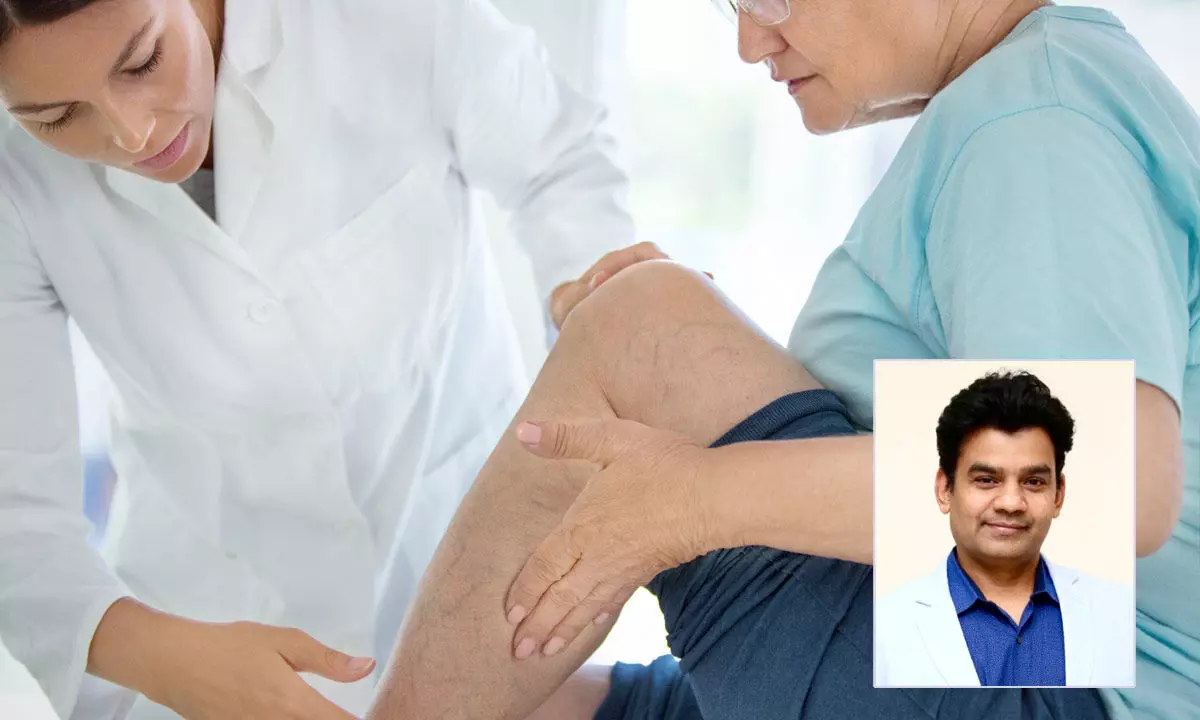Minimally Invasive Treatment Options for Varicose Veins

Dr Sibasankar Dalai, Senior Consultant at Medicover Hospitals
Varicose veins, the visibly enlarged, twisted greenish veins commonly found in the legs, can pose a significant lifestyle risk.
Visakhapatnam: Varicose veins, the visibly enlarged, twisted greenish veins commonly found in the legs, can pose a significant lifestyle risk. Symptoms can range from aesthetic concerns to more serious conditions such as swollen, heavy, or painful legs, pigmentation, recurrent non-healing wounds, and even spontaneous bleeding.
Around 40% of adults suffer from varicose veins according to recent statistics, and the incidence appears to be on the rise globally1. These conditions, if left untreated, can deteriorate and lead to complications such as bleeding, clotting, and ulcers, negatively impacting the quality of life. Early diagnosis and treatment can mitigate the progression of varicose veins.
Dr. Sibasankar Dalai, Senior Consultant - Neuro Vascular Intervention at Medicover Hospitals, Visakhapatnam said, “Recent advancements in medical technology have made varicose vein treatments less invasive, reducing hospitalization time, increasing patient comfort, and yielding better patient outcomes. While Laser Radiofrequency Ablation (RFA) and Sclerotherapy were the most prevalent treatment procedures in the past, we now have Modern Adhesive Therapy, a FDA-approved treatment option, available in India. This method utilizes a particularly viscous formulation, compared to other medical superglues, reducing the risk of it escaping into normal veins from the target site. This represents a new non-thermal, non-tumescent treatment for varicose veins.”
Adhesive therapy presents a promising alternative to traditional Laser or RFA treatments. With this method, patients experience a simple outpatient procedure involving just a single minor puncture of 2-3mm. The benefits of Adhesive therapy include minimal postoperative swelling or numbness, reduced postoperative pain, and a notably quick recovery time, allowing patients to typically leave the treatment room immediately and return to their normal activities on the same day. With a long-term success rate standing at about 95%, it's a highly effective treatment for varicose veins23.
Early diagnosis and treatment are crucial in managing varicose veins. Preventative measures can include:
• Maintaining a healthy weight and engaging in regular physical activity
• If your job requires extended periods of sitting or standing, taking short regular walks to stimulate blood flow in your legs is important
• Avoiding tight clothing as it could restrict blood flow
• Consuming a low-salt, fiber-rich diet.














